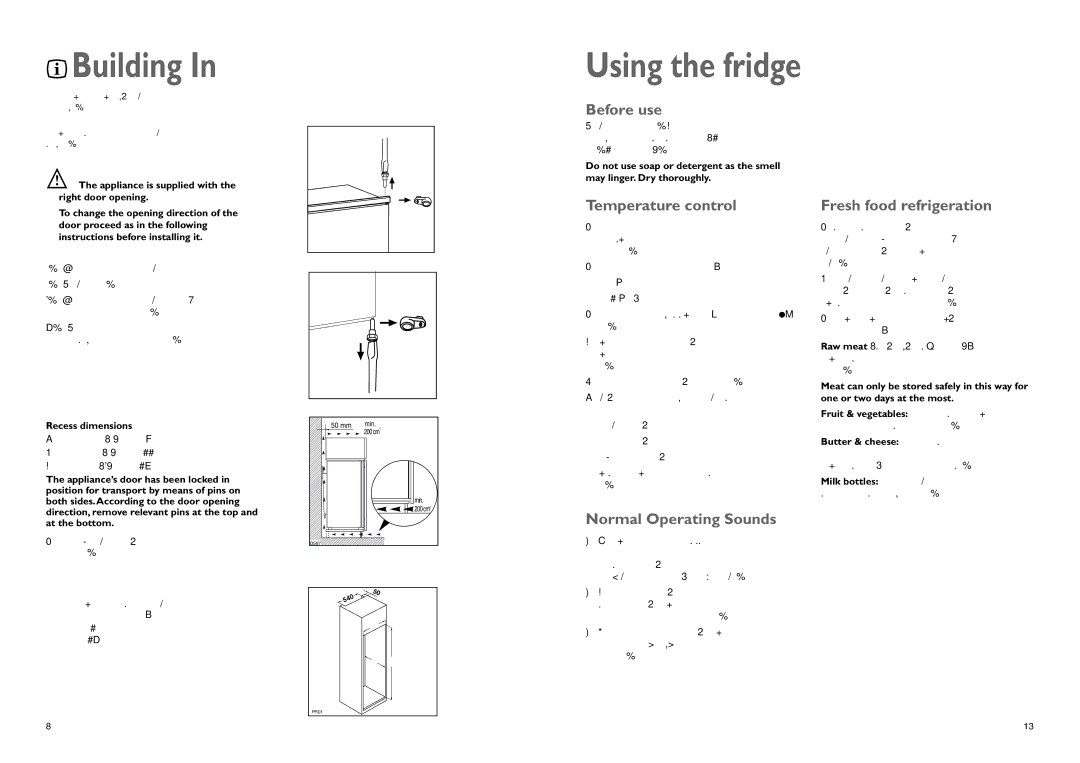JLBILIC02 specifications
The John Lewis JLBILIC02 is a highly regarded appliance in the world of kitchen technology, specifically designed for those who value both functionality and style. This built-in integrated larder fridge exemplifies modern design paired with innovative features, making it an ideal choice for contemporary households.One of the main highlights of the JLBILIC02 is its generous capacity. With a storage volume that caters to the needs of a family, this fridge lets you easily store all your groceries while ensuring that everything is within reach. The adjustable shelves provide flexibility in organizing various items, allowing you to maximize space according to your preferences.
In terms of energy efficiency, the JLBILIC02 is classed as A+, which not only helps you save on energy bills but also contributes to environmental sustainability. This model delivers powerful cooling while consuming minimal electricity, proving that you can have both efficiency and performance.
The advanced cooling technology employed in the JLBILIC02 guarantees that your food stays fresh for longer. The even cooling airflow prevents hotspots, ensuring that every item is kept at the ideal temperature. Fresh food has a longer shelf life, which translates to less waste and more savings.
Another noteworthy feature is the automatic defrost function. Gone are the days of manually defrosting your fridge, as this innovative feature allows for easy maintenance, letting you focus on other tasks. The interior design also prioritizes hygiene, with easy-to-clean surfaces that help maintain a sanitary environment.
The JLBILIC02 integrates seamlessly into your kitchen, thanks to its sleek and stylish design. Its less flashy aesthetic means it can blend with any kitchen decor, whether modern or traditional. Additionally, the integrated design ensures that the appliance hides away neatly behind cabinet doors, contributing to a cohesive kitchen appearance.
This fridge is also equipped with adjustable door hinges, which provides versatile installation options, making it easier to customize according to your kitchen layout and requirements. The product comes with a clear LED interior light, making it easy to locate your items, even in low light conditions.
In conclusion, the John Lewis JLBILIC02 larder fridge is a perfect blend of practicality and style. Its robust features, energy efficiency, and modern design make it an excellent addition to any home. This appliance not only enhances your kitchen’s functionality but also ensures that your food storage requirements are fulfilled in an efficient and aesthetically pleasing manner.

